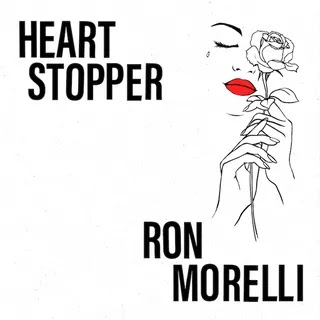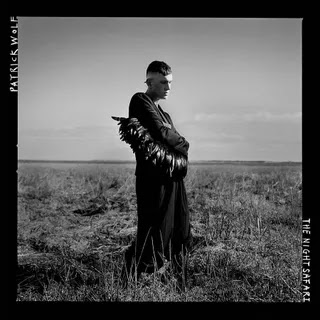The Nigerian-born artist collages highlife, Afrobeats, and electronics into his bravely experimental second EP. While the medley is audacious and impressive, it sometimes feels unfinished.
When Loshh Aje released his debut EP Ífaradá last February, he was set on finding joy in unlikely places. Across seven tracks, which swayed between gospel, funk, and highlife, the Nigerian-born, London-based musician explored the possibilities of resistance against longstanding oppression. He addressed slavery and police brutality in England, contentious topics that were in the zeitgeist when he recorded the EP, all while exhorting the importance of celebration in the midst of struggle.
On his sophomore EP akọle, Loshh has shifted slightly away from political matters. He remains a person of deep thought and careful consideration, no matter how light or dense his thematic concerns are, but here, personal introspection takes precedence over social issues. On Ífaradá, he played the observer and participant, preacher and congregant. But akọle is a lengthy diary entry filled with the musician’s desires and most intimate moments of vulnerability. At all times, he, and not the corrupted world, sits in the middle of the conflict. On akọle, he is more focused on personal progress, making money, and the enemies preventing him from reaching his blessings. There are moments when he returns to gloomier days, examining how far he has come, and there are other times where he is simply thinking on his feet. Having shed the glum textures that marked his previous work, akọle is a profound (although sometimes hastily constructed) project, buoyed by unglamorous but steadfast soul-searching.
“a” begins with a gentle wail before unspooling into a skeletal beat, buffered by talking drums and uneven drum pads. This is a song of supplication: in the background, his mother, Funke, prays for him in Yoruba, while his guttural sing-talking resembles a Yoruba native priest in the middle of incantations. “All these weapons formed against me no/They shall not prosper,” he declares. Loshh’s writing remains as witty and ironically unserious as ever. He sings with the fervor of a prophetic Nigerian pastor in the peak of Sunday service, declaring the scripture as a personal manifesto, as convictions, as matters requiring immense urgency.
“k” is a more cohesive groove, featuring fellow London-based Nigerian musician Obongjayar. The Santiago Morales-produced track—which is also the most memorable number on the EP—pays homage to the gritty percussive foundation of “Konko Below,” the famous Afropop number by Lagabaja. The Afrobeats enigma rose to fame around the early 2000s for merging West African instruments, such as talking drums, with the saxophone. As was common for Afrobeats artists of that era, he also had a penchant for digging into sociocultural issues. On “k,” Loshh grapples with self-preservation. At times the lyrics feel slapdash and poorly improvised, taking unexpected turns, as though they were made up on the spot and left without further review. But several key changes manage to keep the track adequately centered. By its end, “k” overflows with undeniable honesty.
Loshh is difficult to categorize; his influences transcend the boundaries of genre and include hip-hop icons like André 3000 and Snoop Dogg, as well as highlife and Afrobeats maestros King Sunny Adé, Yinka Ayefele, Fela Kuti, Pasuma, Psquare, and Lagbaja. Though he draws on multiple sources, Loshh’s practice of combining these inspirations all at once can sometimes leave his songs at an embryonic stage—they never seem to reach a point of mature development.
Across akọle, it often feels as if buckets of paint were thrown on a blank canvas, leaving the art staring back difficult to make sense of. Even his brief return to the topic of police brutality in the Fela Kuti-esque “l” feels like an afterthought; it is brash and fevered in its delivery, but lacks the much-needed poetry that his songwriting can carry. Ultimately, akọle is the work of a prodigious talent carefully building his own sonic language—unpredictable, charged, bravely experimental—that only he can lay claim to. At his best, Loshh’s instinct for uncanny storytelling imbues his work with a bold and timeless quality. Sitting just a little longer to refine his ambitious but riotous experimentations would have served akọle well.



%20Music%20Album%20Reviews.webp)












0 comments:
Post a Comment